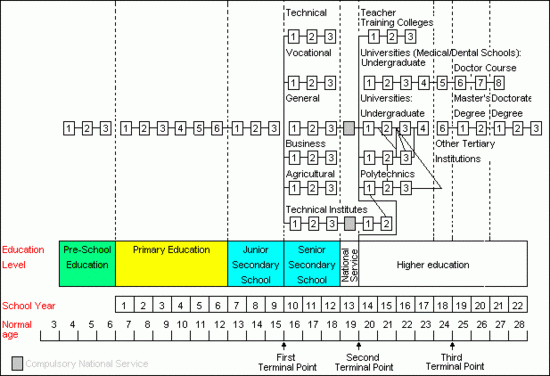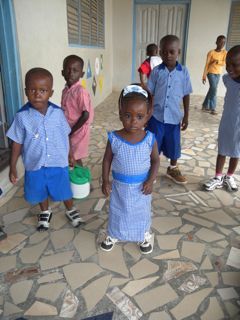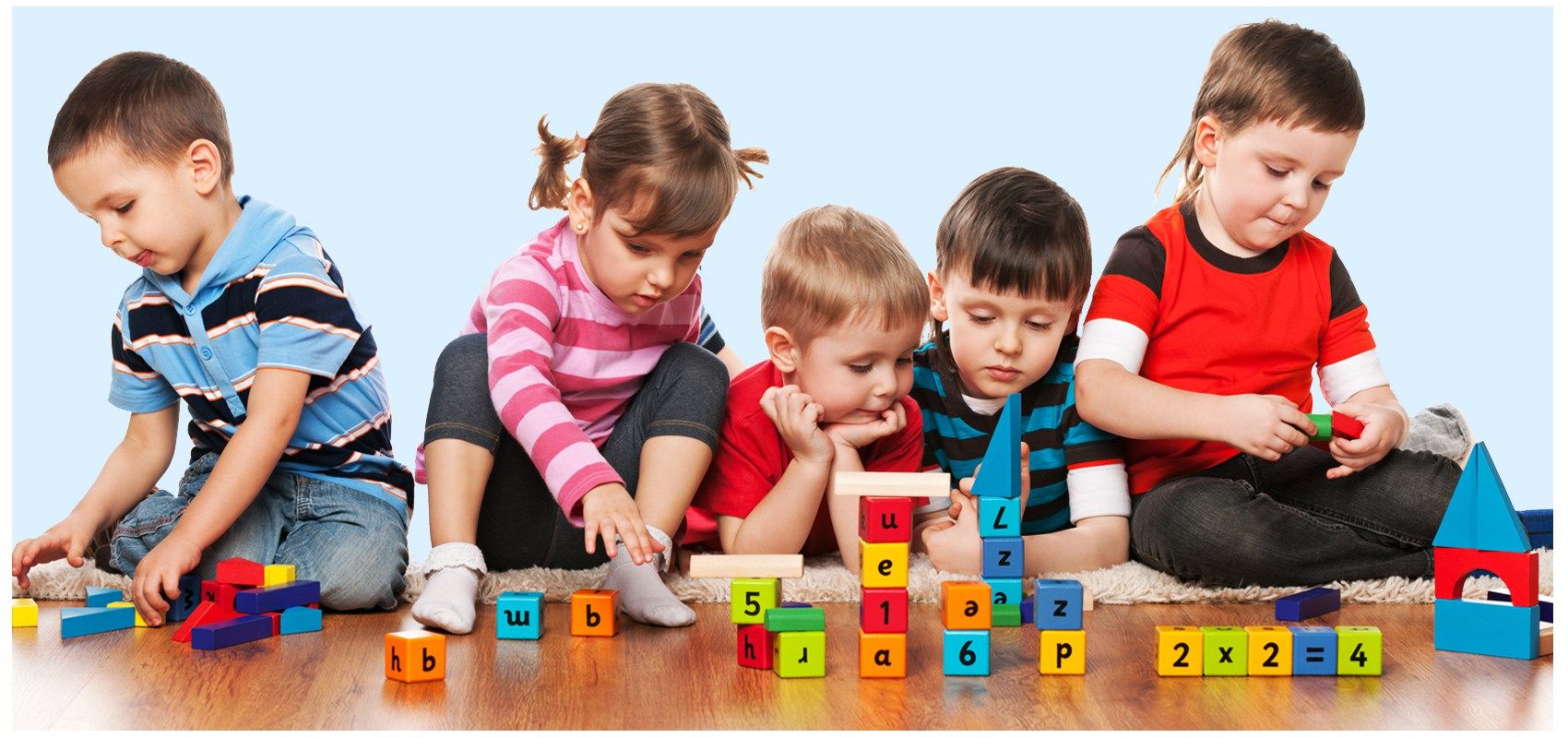What is the right age to send a child to school?
The Ghana education act of 1961 established the policy of free and compulsory basic education for all Ghanaian children of school going age but what exactly is the school going age? There are several controversies surrounding the right time to send the child to school. Ghana currently pegs the school going age at age 4 where the child is expected to start at pre-school which is usually made up of 2 years of kindergarten, 6 years of primary school and another 3 years at the Junior high school.
.jpg)
source

Ghana Education Structure from Kindergarten to Tertiary

In the developed countries the age range is often fixed so that no child below a certain age group is allowed into any school –private or public. International comparison and psychological studies have shown that it is better to delay child from instructional based education.
.png)
source || Countries and age range for school children
Comparing children who began formal literacy instruction at age five or age seven, Studies in New Zealand have shown that by the age of 11 there was no difference in reading ability level between the two groups. But the children who started at five developed less positive attitudes to reading, and showed poorer text comprehension than those children who had started later.
Children are usually not mentally ready for instructional academic work until age 5 and even then the academic work need special structuring that would not put much demand on the child.
Evidence shows increase in stress and mental health problems among children in countries where early childhood education is being increasingly formalized. This may have long term consequences on students as their play time is often restricted by the formal system.
Instead of the regular school children could attend pre-school that are play based. This provides the children with the opportunity to develop all the faculties required for academic work without the unnecessary early childhood stress.

source ||Play-based pre-school homes
Kathy Sylva and colleagues in 2004 study demonstrated that that longer period of high-quality, play-based pre-school education resulted in a significant difference to academic learning and well being through the primary school years.
Also in 2002 a study in the US showed that children whose preschool was based on instructional learning model had scored significantly lower marks compared with the children who had attended child-initiated, play-based pre-school by the end of their sixth year in school.
This mass of evidence suggests that parents must take a close look at the age to send their children to a regular school. It is often said that the earlier the better but that evidently does not apply to education of the child. The government could be called upon to set the minimum school going age at 6 years or higher and to implement policies to ensure that this is respected but would you rather wait? or you will take initiative to either send the child to the preschool with play-based programs until age 5 to 7 or delay the child at home?
This first appeared on my website Ehm Kannde Notes
In under developed and developing countries, ideological factors effect the the educational system..
That is true also
Sending children to preschool etc varies accordingly to culture and wealth of nation. North Ireland and some other northern european countries have much more opportunities for children education. In these countries education is far more beyond politics .
That is very true, I hope for a time that our educational system in Ghana would not be influenced by politics
Sometimes people take their children early to school for the reason being that, they don't want their children to grow old and still be in school to avoid shame and also for the fact that they finish school early, get a job and take care of them(parents) when they grow old.
I think this has to be well balanced as research have show...I personally believe in home teaching during the early stages
Yeah....true ....socialization begins primarily at home.
You got a 1.16% upvote from @postpromoter courtesy of @ehmkannde!
Want to promote your posts too? Check out the Steem Bot Tracker website for more info. If you would like to support the development of @postpromoter and the bot tracker please vote for @yabapmatt for witness!
Sneaky Ninja Attack! You have been defended with a 1.28% vote... I was summoned by @ehmkannde! I have done their bidding and now I will vanish...Whoosh
You got a 20.00% upvote from @passive courtesy of @ehmkannde!
This post has received gratitude of 1.58% from @appreciator courtesy of @ehmkannde!